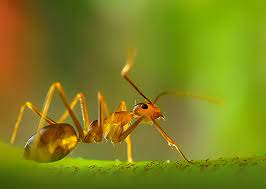Matching the proper treatment to the ant species is paramount to successful and long-term Ant Control. Ant control can be difficult for the homeowner or business. Call i-PRO at 361-980-7378 to let us take care of your ants.
The Right Pesticide at the Right Dilution for Proper Ant Control:
Pesticides have become safer by developing pesticides that specifically target a unique part of the physiology of an ant species or several ant species. Today’s Wide Spectrum pesticides will provide a knockdown. But these often last only a short time or fracture ant colonies into two or three new ones away from the mound or nest. So, it may appear that a fire ant mound has been extinguished, but there are twice as many in the area.
A Pest Professional will be familiar with ant species in the area and know which pesticide to use. Often, two treatments must be made for two ant species. For example, fire ants are treated with an annual granule, and pyramid ants are treated with a 60-day spray. Both are true non-repellents. Ants detect and avoid repellent pesticides. Or, fire ants and pharaoh or ghost ants.
Identification for Proper Ant Control:
Ants are relatively easy to ID using a microscope, especially with the help of a guide published by TAMU’s extension service: The Leaf Cutter ant has a large head, slender thorax and abdomen (gaster), long legs, and is often carrying parts of leaves from a bush they will make bare overnight. Use 20x to identify the species of ant. Proper identification is the first step in Ant Control.
How ants smell food and each other:
South Texas is home to many species of ants, including invasive species like the Tawny Crazy Ants and the red imported fire ants. Carpenter ants can do a lot of damage. Pharaoh ants are pests that appear out of walls and in kitchens. Ants can detect a food source in the third story of a house and respond quickly. See the following video:
This video published by the New York Times does a great job presenting how ants sniff things out.
Call i-Pro Pest Control with any questions or service at 361-980-PEST
